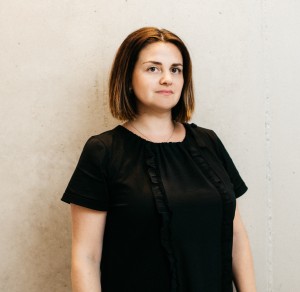

Surgery is more than an operation! Optimum treatment for you
General and visceral surgery treats diseases of the abdominal cavity, that is, the entire gastrointestinal tract, starting from the esophagus, including the stomach and duodenum and to the small intestine, colon and anus/rectum. The spectrum of diseases includes good and malignant neoplasms (tumors), inflammatory diseases and congenital malformations, as well as acute diseases of the above-mentioned organs.
The clinic specializes in the following areas:
- “Keyhole surgery” – minimally invasive surgery;
- Treatment of tumors – oncological surgery;
- Perioperative treatment for all types of interventions.
Minimally invasive surgery in recent years has become the standard of treatment for many diseases related to general and visceral surgery. Endoscopic operations in our department are assigned to each patient who has appropriate indications. The advantage of minimally invasive surgery, in addition to the small size of the incisions, is also a moderate degree of intervention and rapid recovery of the patient, moderate pain and rapid recovery of the gastrointestinal tract. Today, the following endoscopic operations are performed, if there are indications:
- removal of the gallbladder – cholecystectomy;
- treatment of inguinal, ventral (postoperative) and umbilical hernias (herniotomy);
- appendix operation – appendectomy;
- surgery for heartburn – antireflux surgery/fundoplication;
- partial resection of the small intestine;
- resection of the large intestine – colectomy;
- rectal resection – rectectomy;
- pancreas resection – pancrectomy;
- resection of the stomach;
- esophagus removal – esophagiectomy;
- fenestration of liver cysts and partial resection of the liver;
- adrenal removal – adrenalectomy.
The main task of oncological surgery is complete cure of tumor diseases in an operative way, or in combination with modern medical and/or radiation methods of treatment. Close cooperation of all specialists is the main condition for optimal treatment of tumors. To do this, all cancer patients are examined oncologic consultation with specialists in gastrointestinal diseases (gastroenterology), medical treatment of tumors (oncology) and radiation therapy. The decision to conduct the operation is always performed collectively by experienced specialists in the field of surgical and drug treatment of tumors. In this case, as much as possible, the most organ-preserving methods are used, for example, minimally invasive surgery. Preservation of normal body functions (for example, preservation of the sphincter and refusal to apply stoma) remains the focus of surgeons' attention. If treatment is not possible, surgical interventions can make sense to reduce the severity of symptoms and/or improve the quality of life. Typical diseases in treatment of which our Clinic has rich experience are:
- tumors of the colon and rectum;
- tumors of the esophagus and stomach;
- liver and pancreas tumors;
- peritoneal tumors – peritoneal myxoma and peritoneal carcinomatosis.
Optimum perioperative treatment applies the latest scientific developments in order to minimize the patient's stay in the hospital. From many traditional in surgery things can now be abandoned: from drainage tubes, stomach probes or urinary catheters. Blood sampling and other unpleasant procedures are limited to the minimum allowable volume. If possible, special diets are avoided or even complete starvation. Effective preventive measures reduce postoperative nausea and vomiting. Needless to say, blood transfusions are very rare and are subject to all safety rules. With optimal analgesic therapy (when interacting with the Clinic of Anesthesia, Intensive and Palliative Medicine), early mobilization from the bed is actively supported. Rehabilitation of patients is accelerated, so stay in the hospital, to the joy of patients, is reduced. Psychosocial rehabilitation also plays an important role. Patients, relatives, nursing staff and doctors literally make up a team whose goal is to spend time before, during and after surgery in the most favorable manner. Of course, a discharge from hospital and further medical assistance is organized by a family doctor, social services or rehabilitation centers in conjunction with a patient.
Share:
